Extra Challenge Matching worksheets activities for Ages 3-7
29 filtered results
-
From - To
Enhance your child's learning experience with our "Extra Challenge Matching Worksheets" designed for ages 3-7! These engaging activities promote logical thinking and cognitive development in young learners. Kids will enjoy matching images, shapes, and patterns while honing crucial problem-solving skills. Our worksheets are colorful, interactive, and customized to captivate young minds, making learning fun and effective. Ideal for at-home learning or classroom use, these extra challenge worksheets are perfect for parents and teachers seeking to enrich their child's educational journey. Explore our collection today and watch your little ones thrive as they discover the joys of matching and learning!
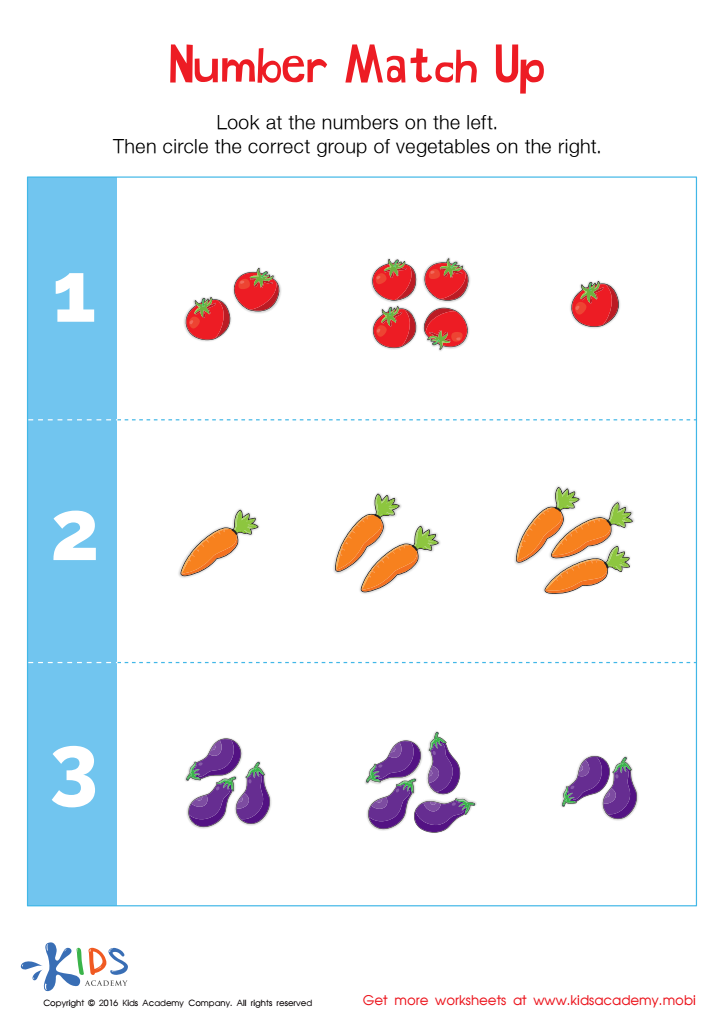

Number Match Up Worksheet
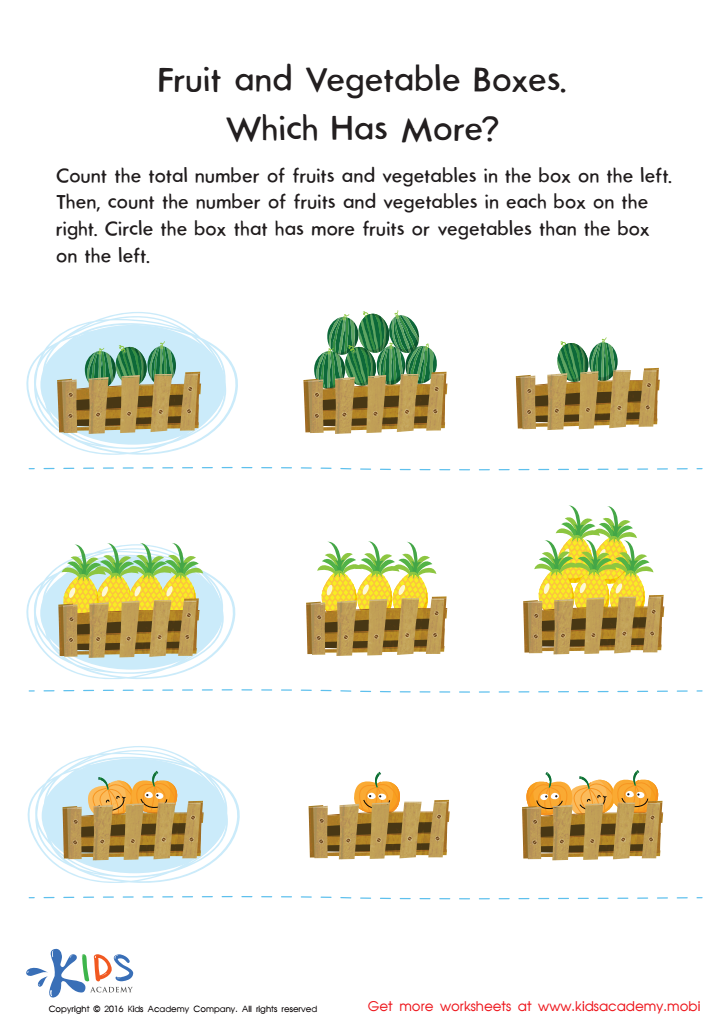

Which Has More? Size Worksheet
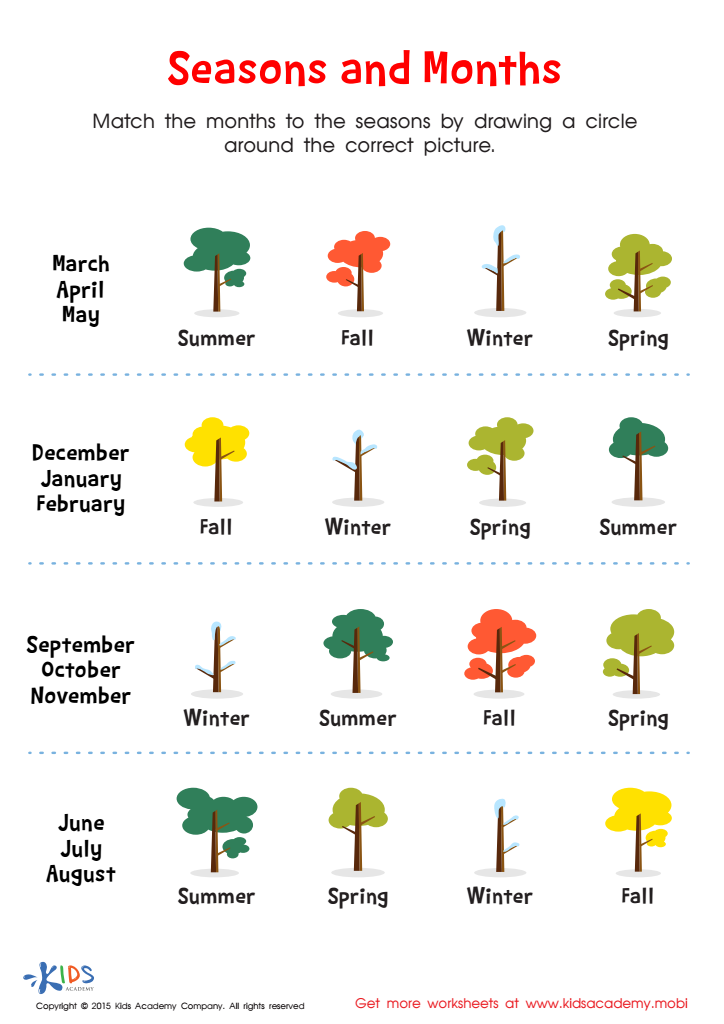

Seasons and Months Worksheet
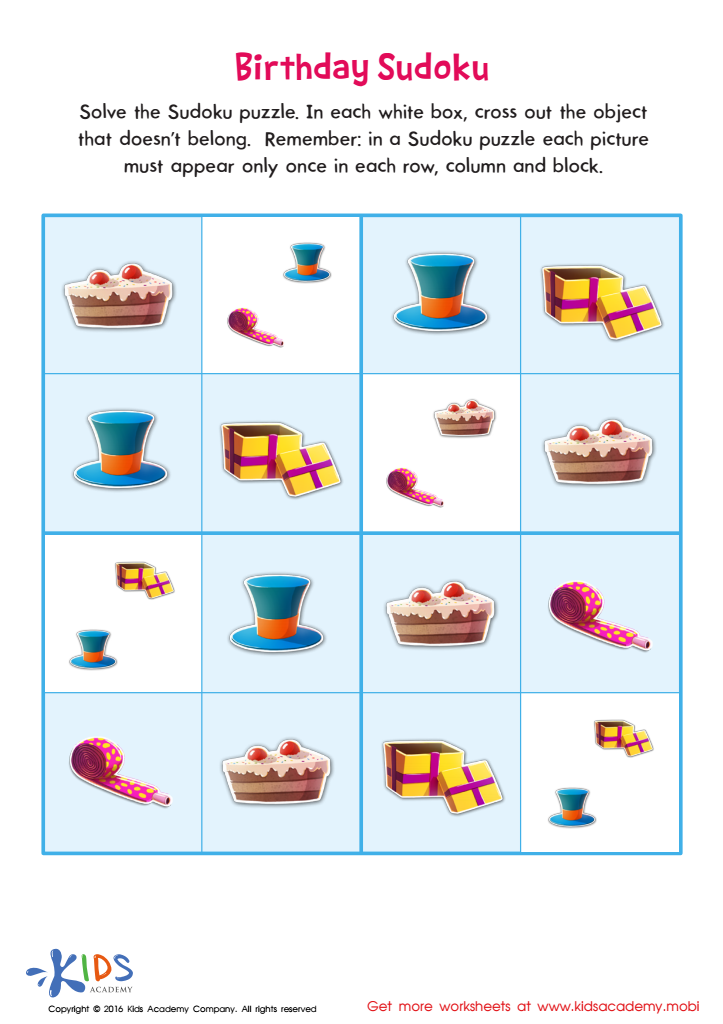

Birthday Sudoku Sorting Worksheet
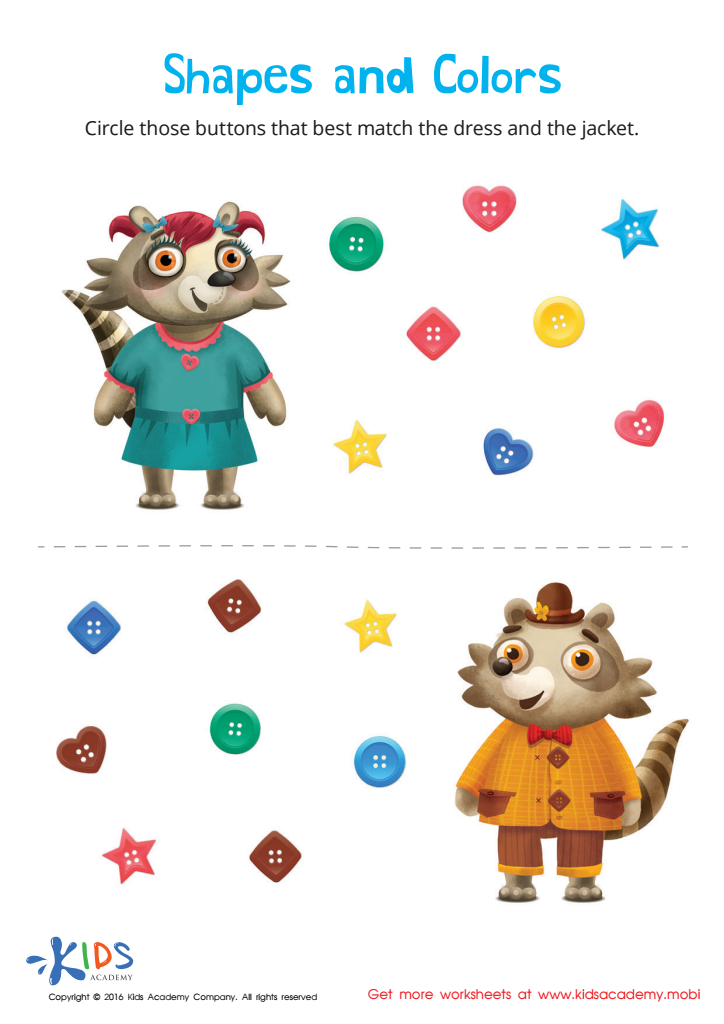

Matching: Shapes and Colors Worksheet
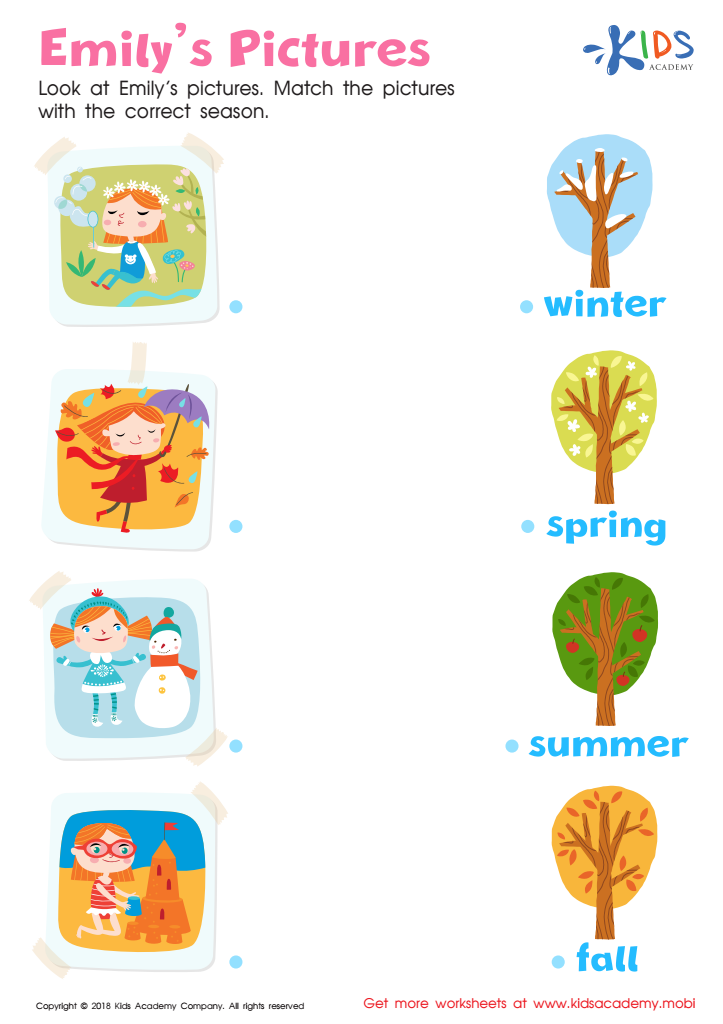

Emily's Pictures Worksheet
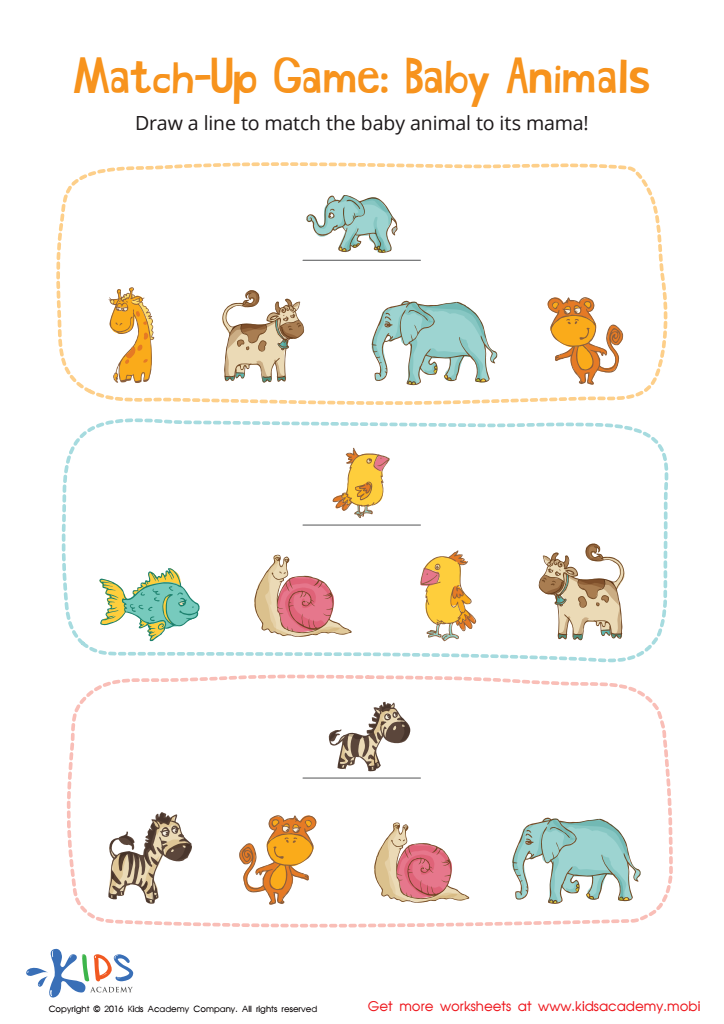

Baby Animals Match-Up Worksheet
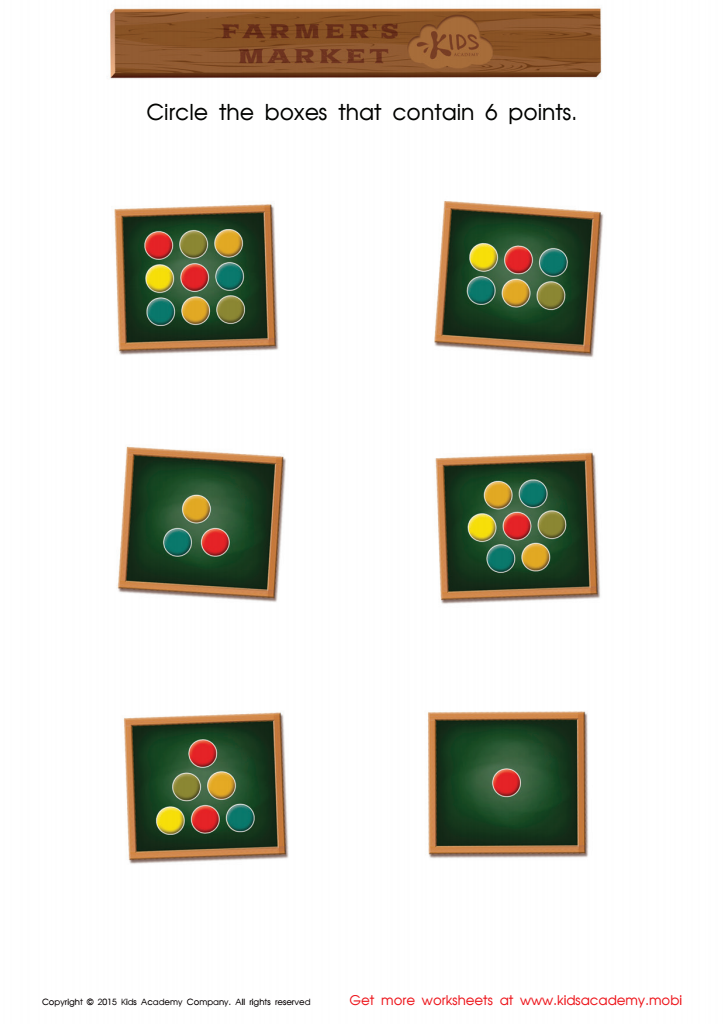

Count and Match Points 6 Math Worksheet
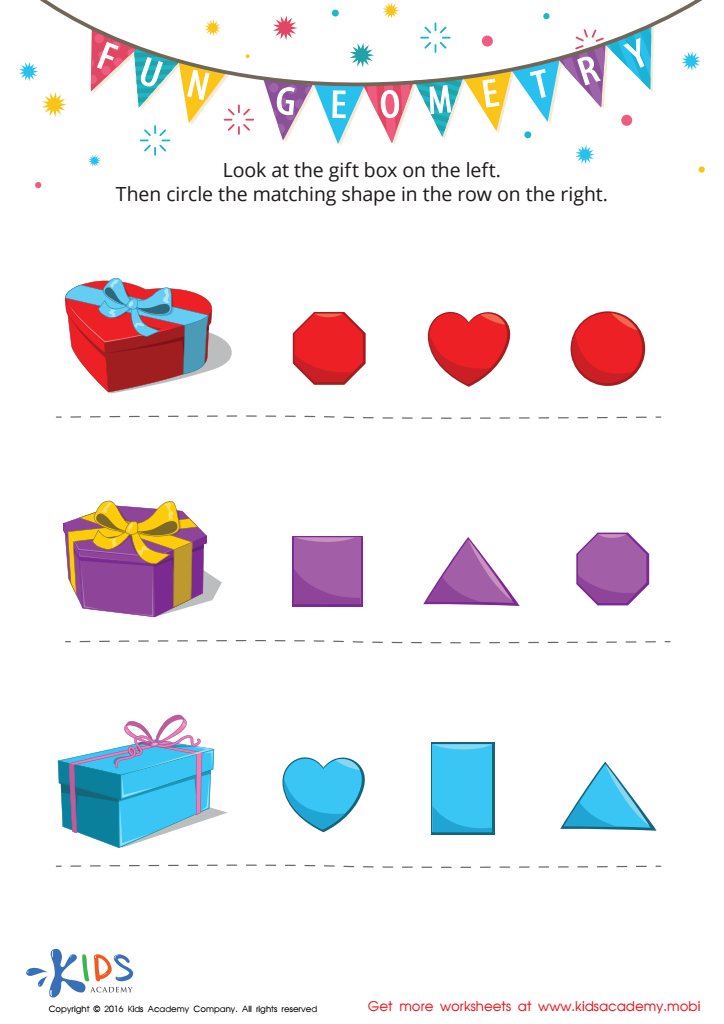

Fun Geometry Worksheet
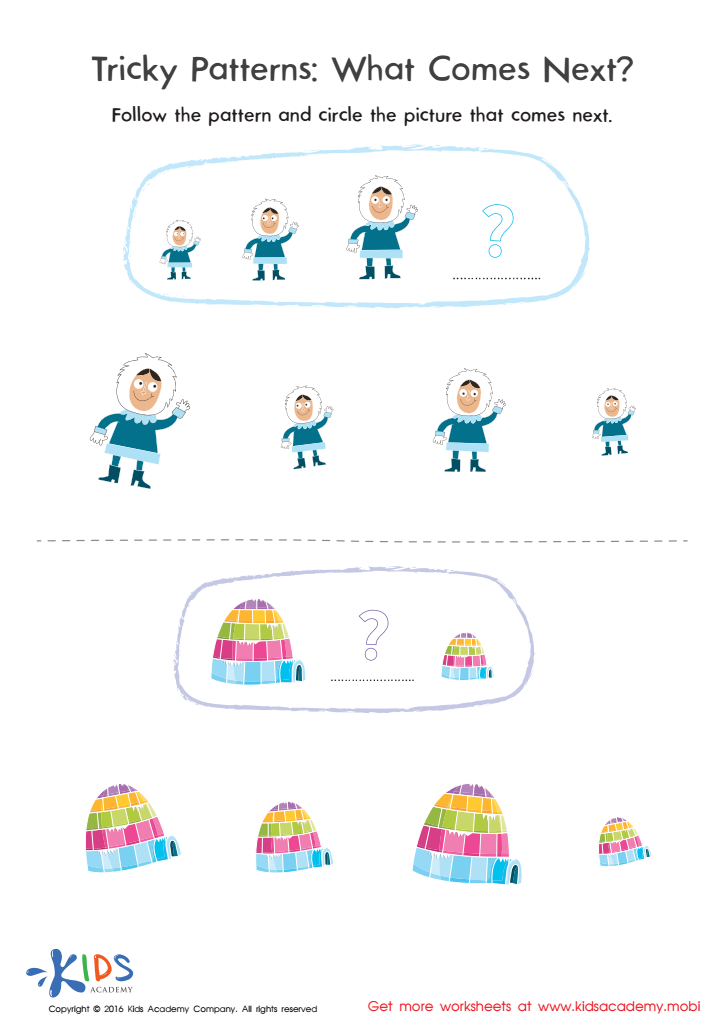

Tricky Patterns Size Worksheet


Fairy Tale Worksheet: Count and Classify with Rapunzel
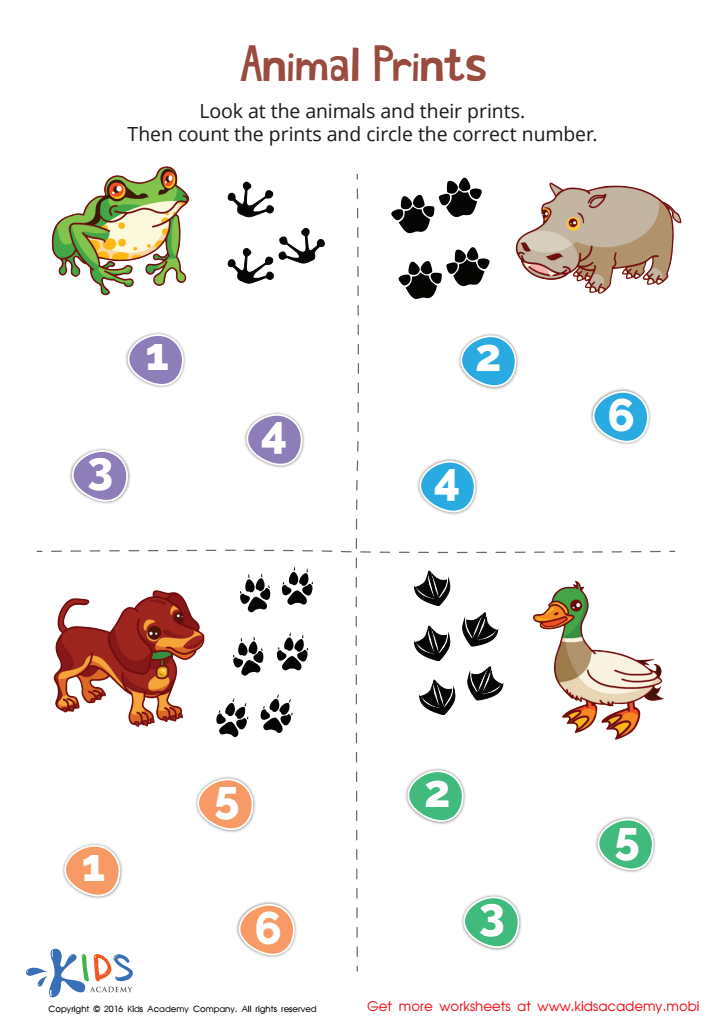

Animal Prints Match-Up Worksheet
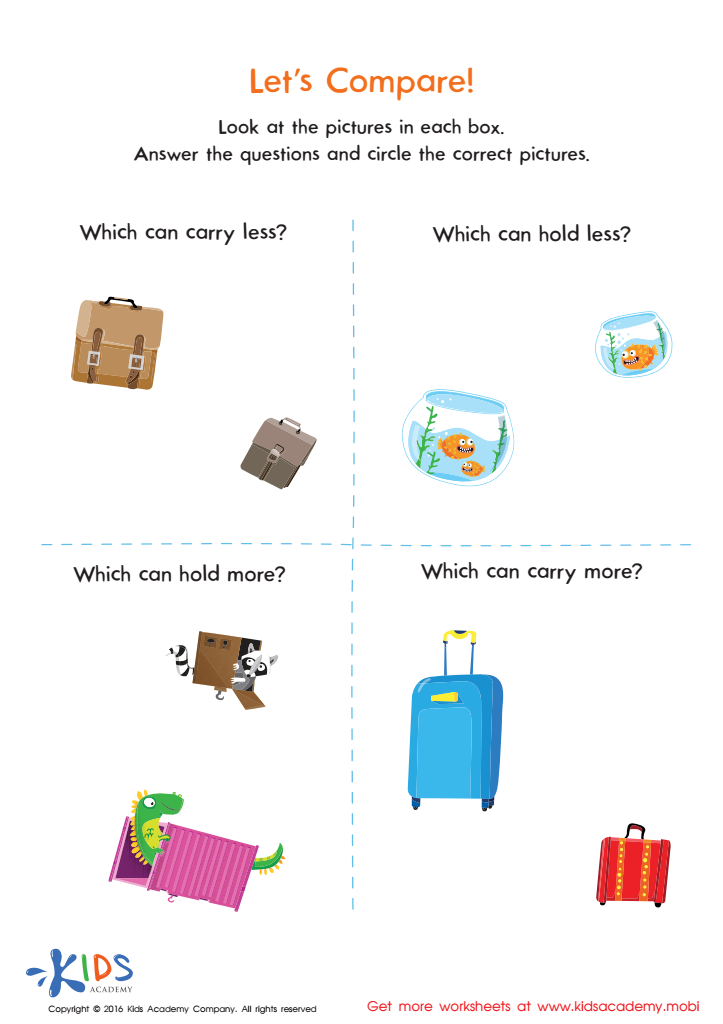

Let's Compare Worksheet: Big or Small
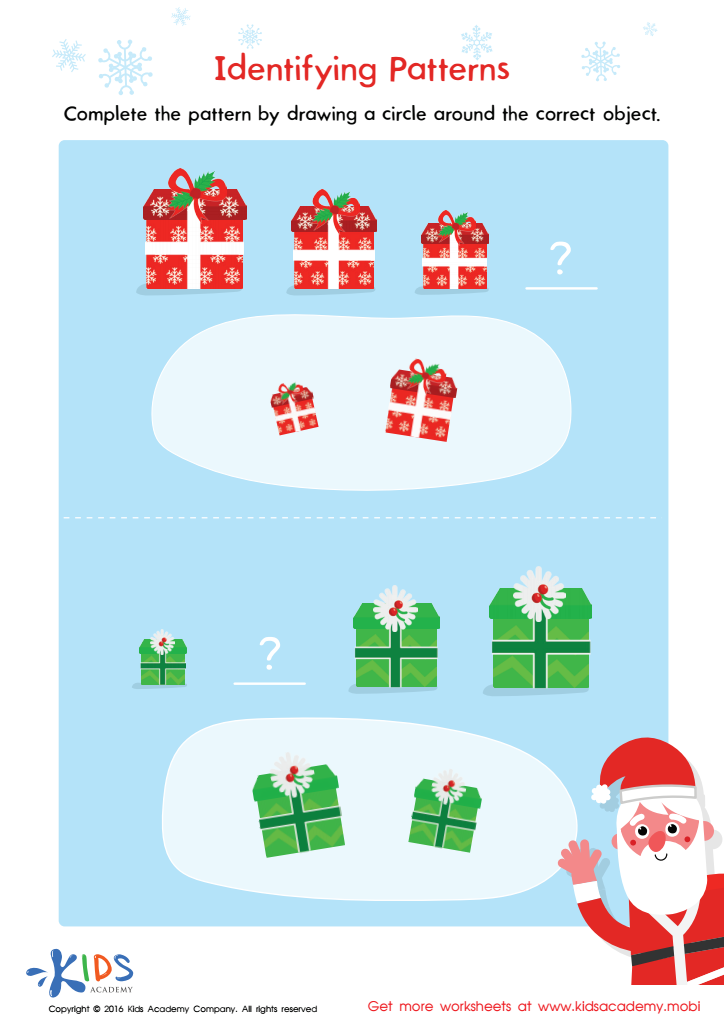

Identifying Patterns Worksheet
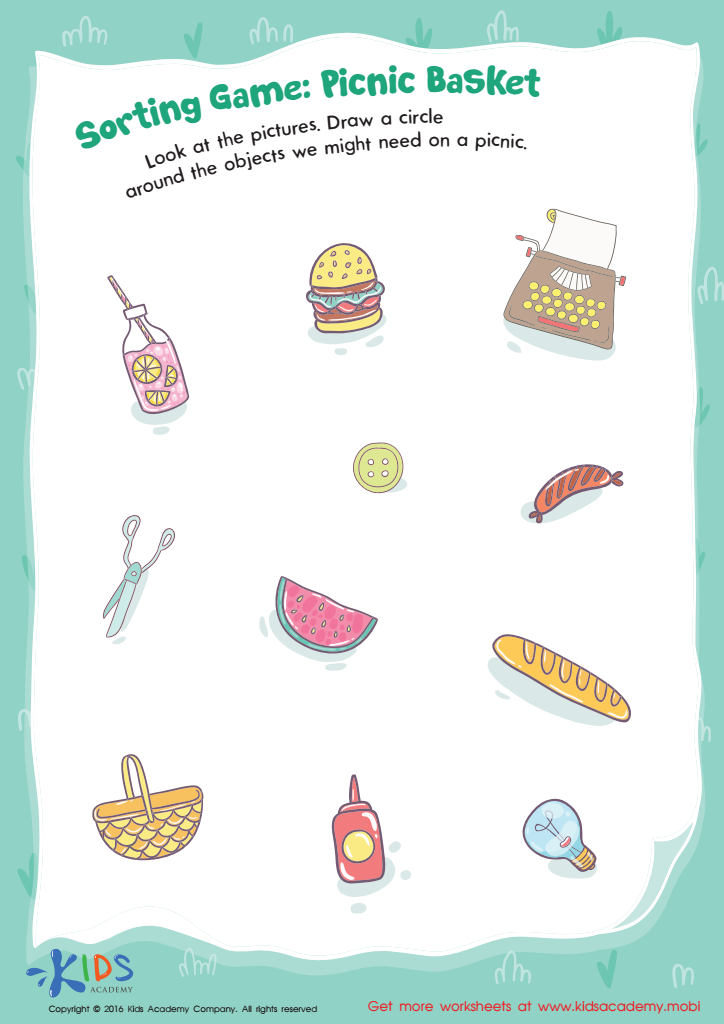

Picnic Basket Sorting Worksheet
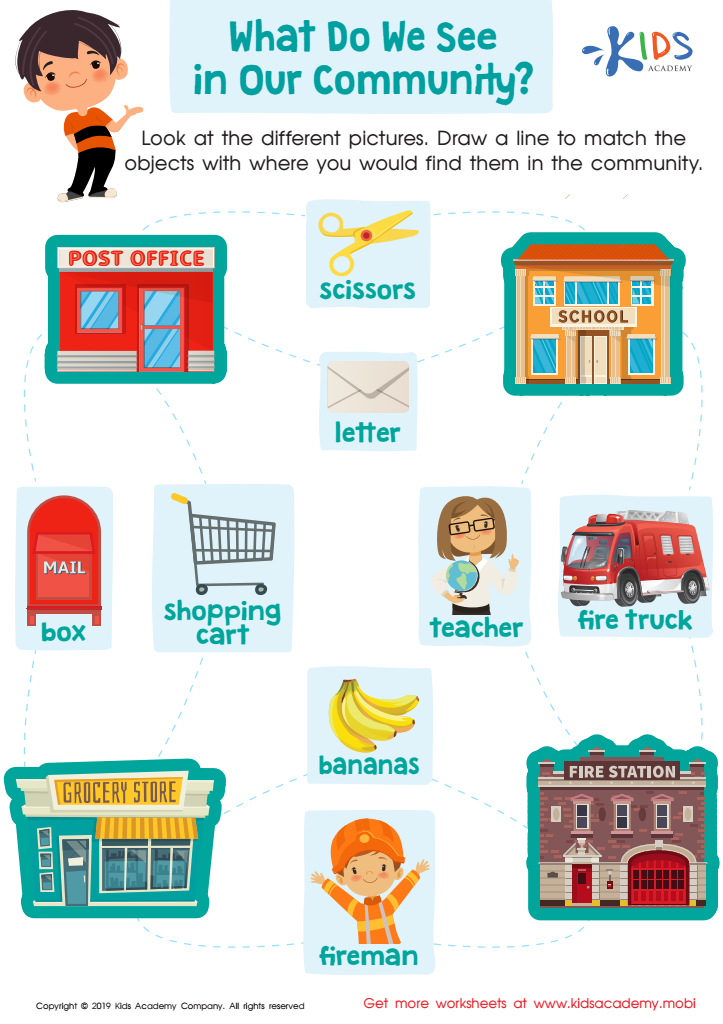

What Do We See in our Community? Worksheet
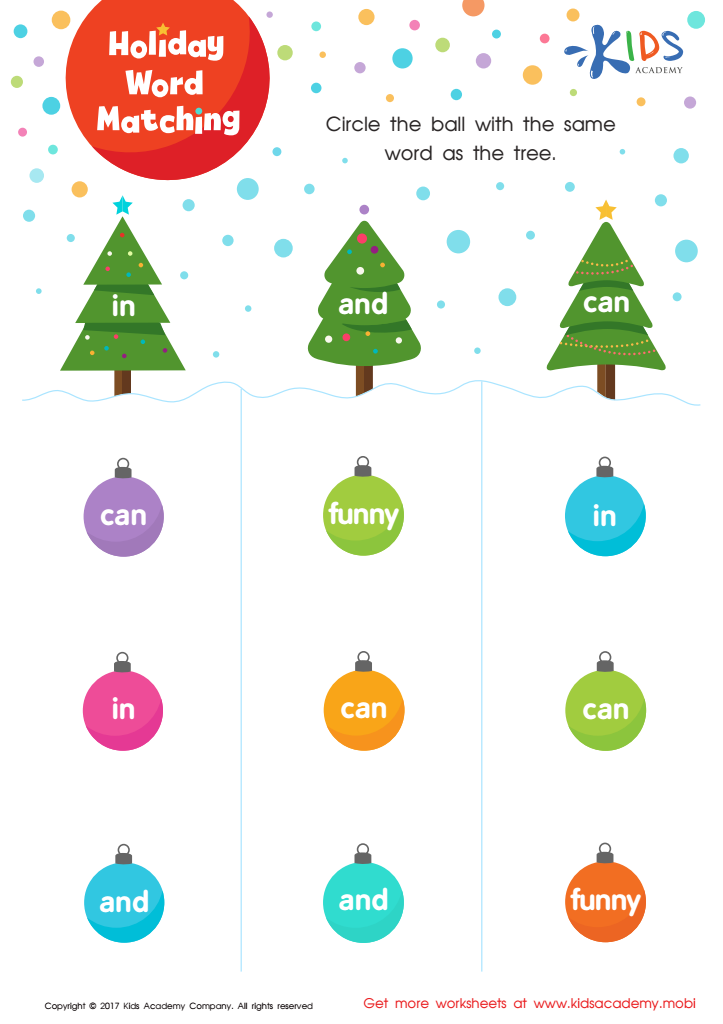

Holiday Word Matching Worksheet
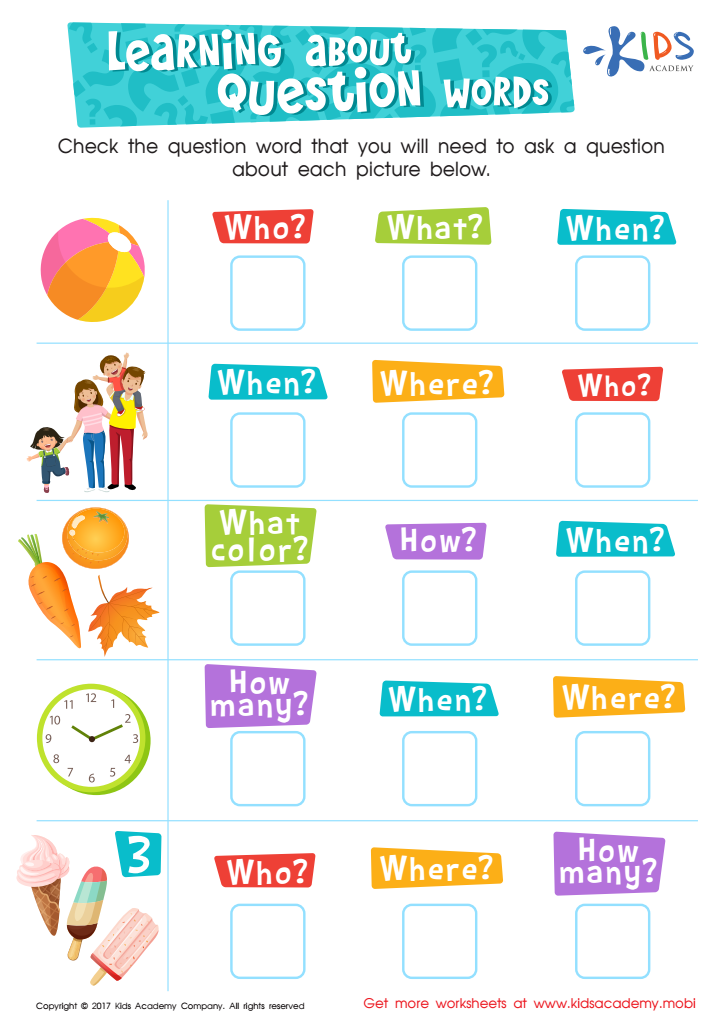

Learning about Question Words Worksheet
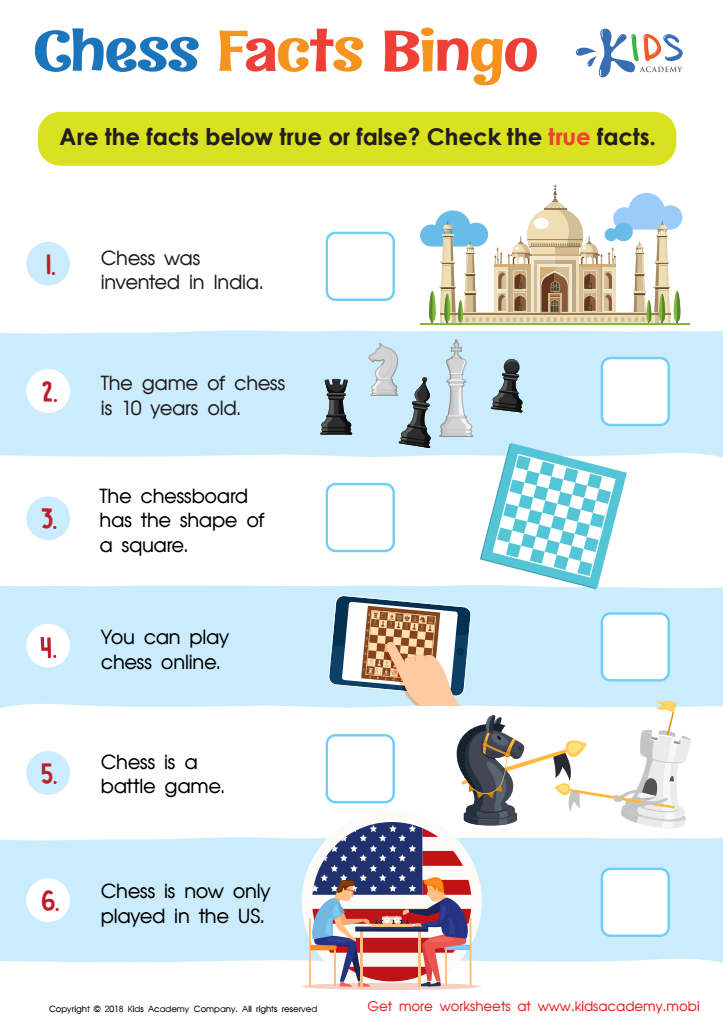

Chess Facts Bingo Worksheet
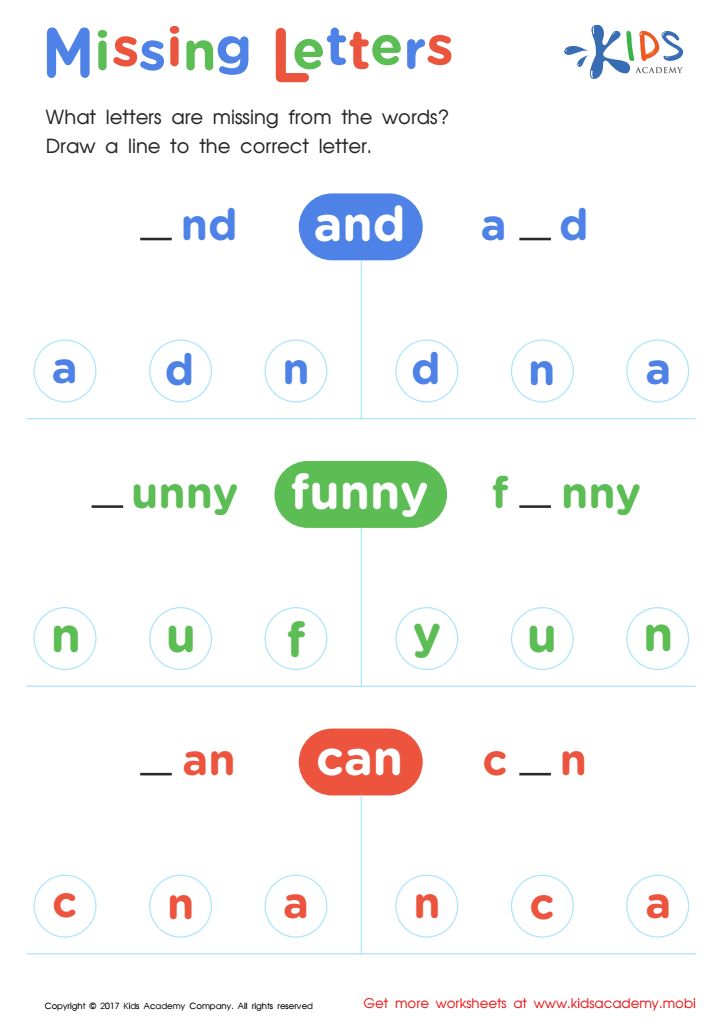

Missing Letters Worksheet
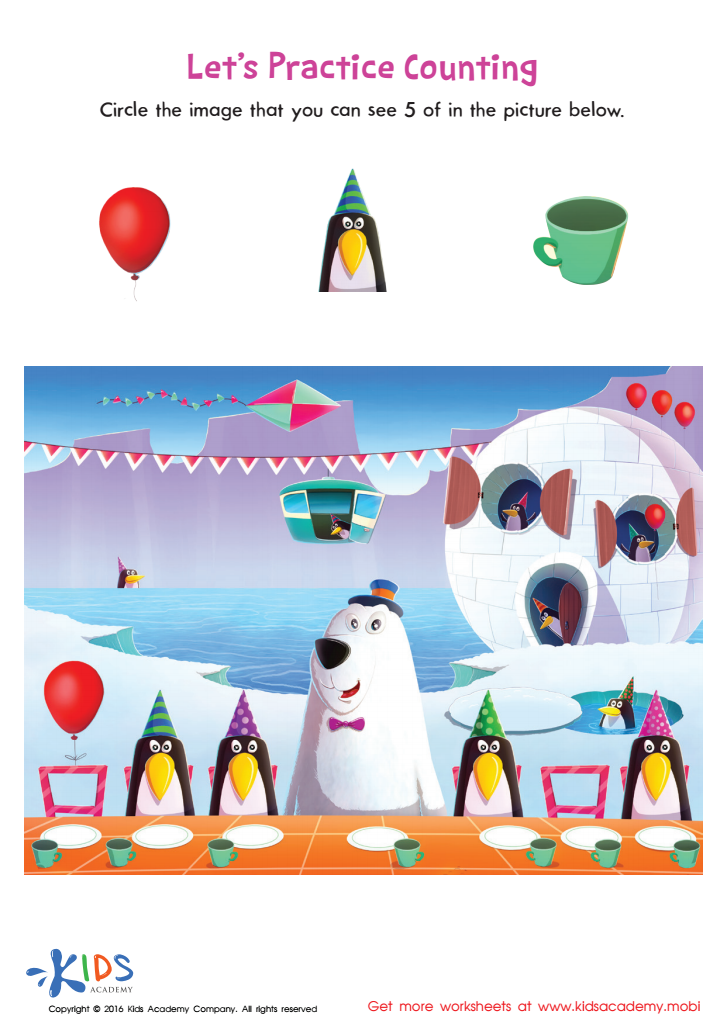

Counting Worksheet: Let's Practice Counting
Extra Challenge Matching activities for children aged 3 to 7 hold significant importance for both parents and teachers. These activities promote cognitive development by fostering critical thinking and problem-solving skills. Engaging in matching exercises enhances memory, as children learn to recognize patterns, categorize objects, and establish connections—crucial skills that lay the groundwork for future learning.
Moreover, these activities support social and emotional growth. When children participate in matching games, they often collaborate with peers or caregivers, encouraging communication and teamwork. This social interaction helps build confidence and strengthens relationships, which is essential for emotional well-being.
From a developmental standpoint, matching activities align with age-appropriate learning standards. They cater to various learning styles by combining visual, auditory, and kinesthetic elements. Such versatility ensures that children remain engaged and motivated while absorbing new concepts.
For educators and parents, incorporating Extra Challenge Matching activities into daily routines or lesson plans means giving children additional tools to explore their environment and build foundational skills in a fun, interactive manner. Ultimately, fostering these experiences at an early age leads to well-rounded and resilient learners equipped for future academic success.
 Assign to My Students
Assign to My Students

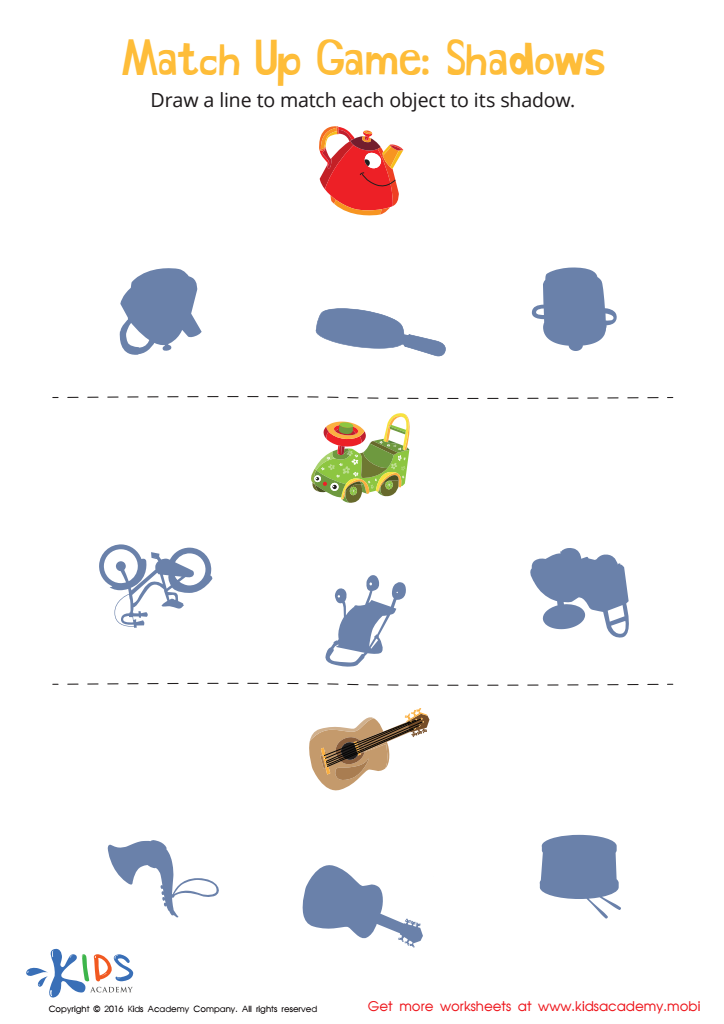
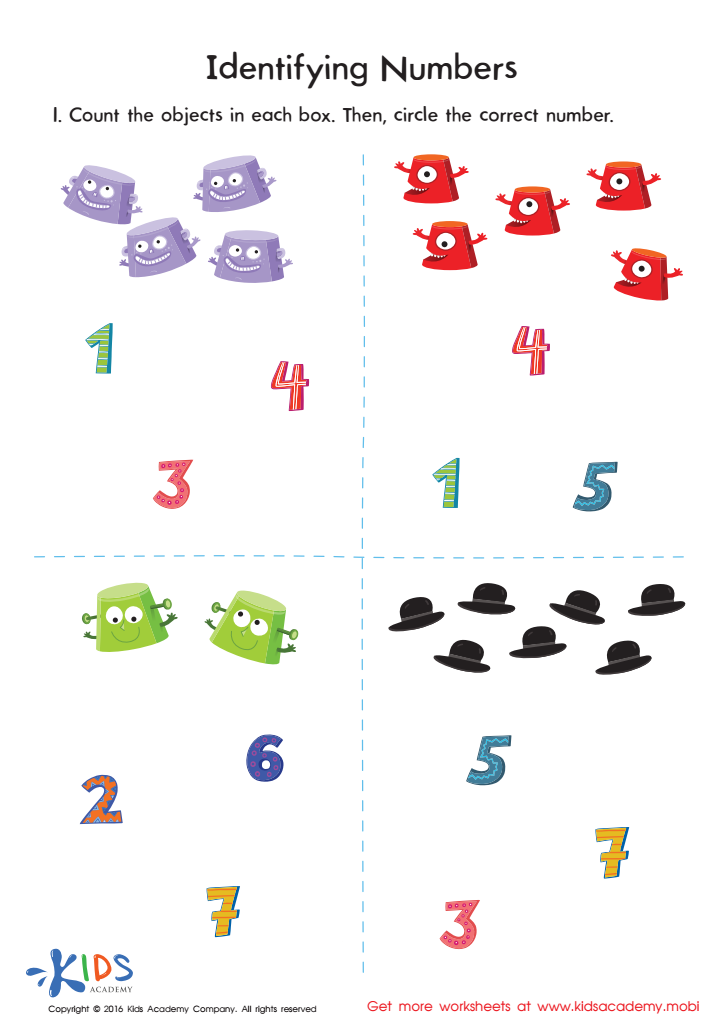
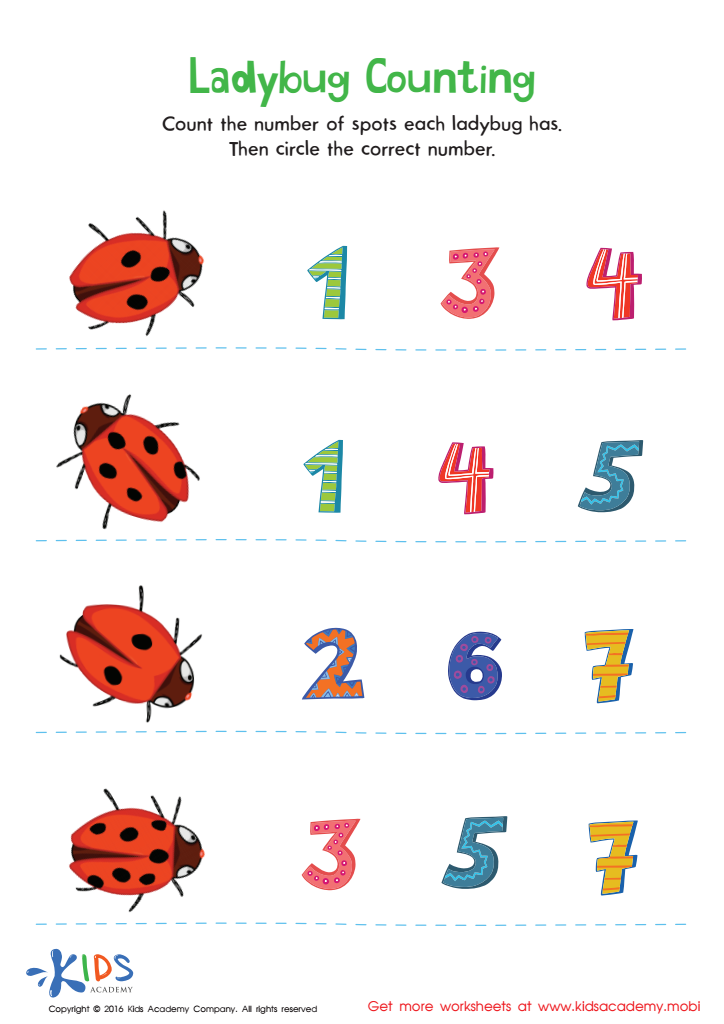



.jpg)














